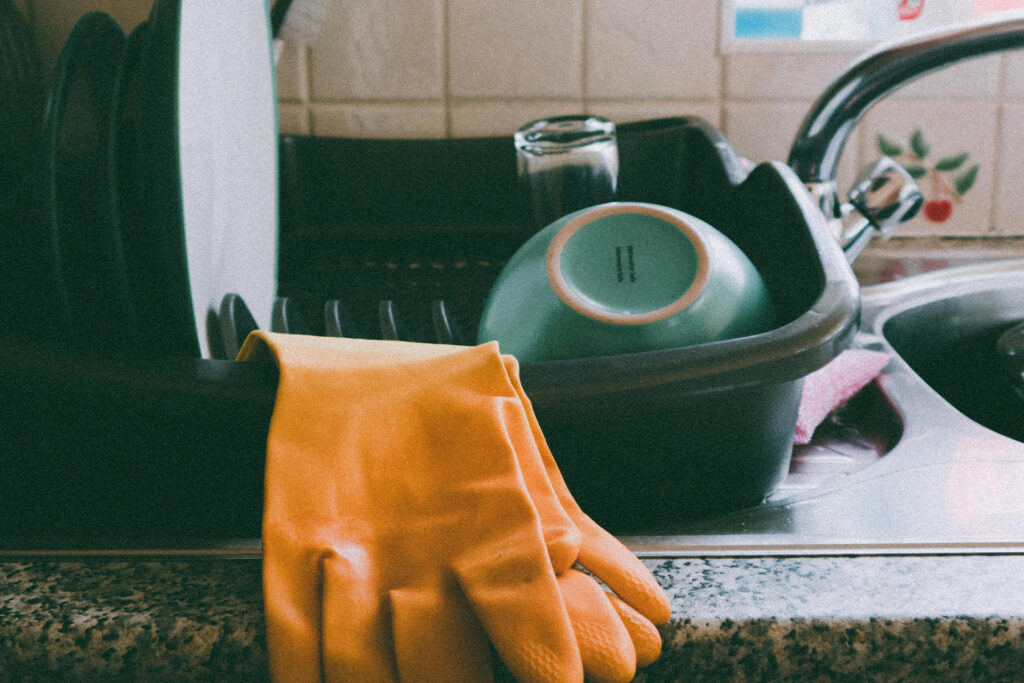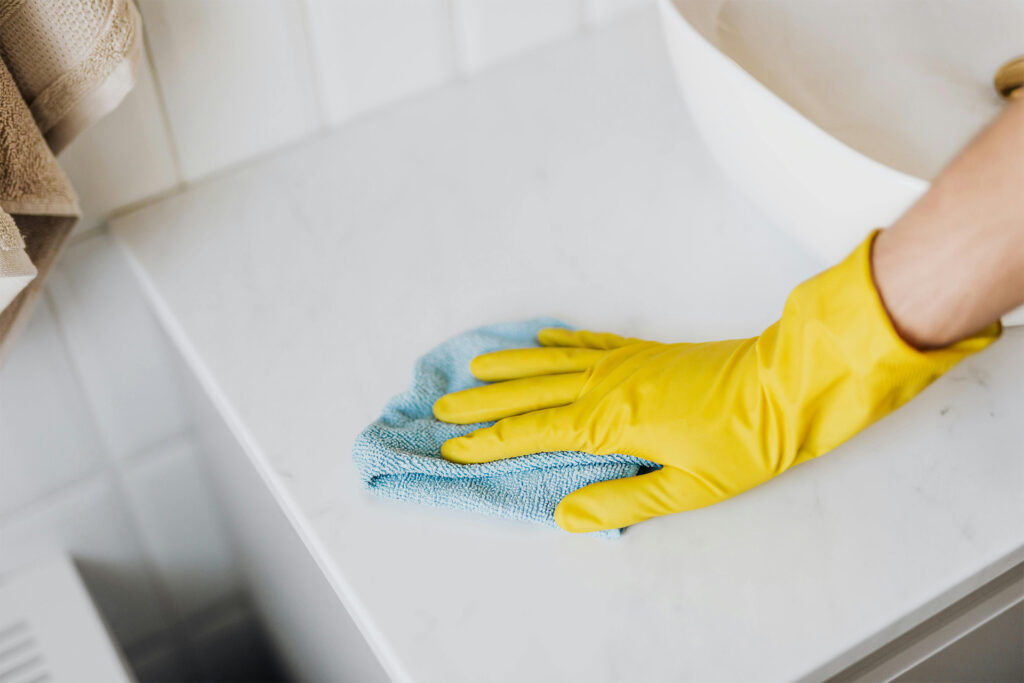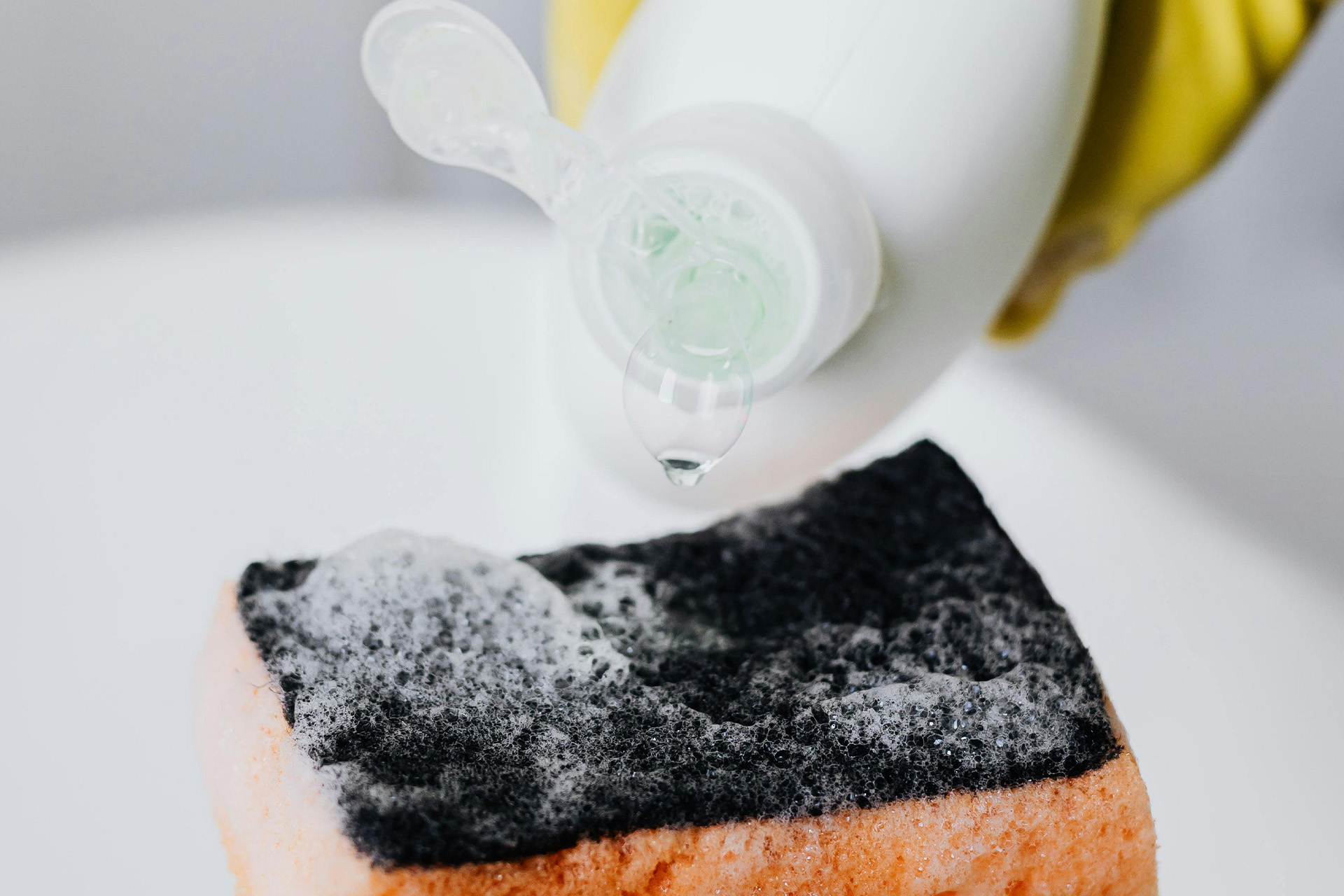by Shawn Crowle
Clean spaces, fresh linen, organized rooms, we all love a tidy house (maybe not the housework, but definitely the result), but keeping our homes clean can have a surprisingly dirty effect on the planet. From the cleaning products we use to the amount of water and energy consumed, housework leaves a larger carbon footprint than many of us realize.

Cleaning Products and Chemicals
The wide range of cleaning products available today often contain harsh chemicals that can be harmful to the environment. Many household cleaners contain volatile organic compounds (VOCs), which can contribute to air pollution and have adverse health effects. When these chemicals are washed down the drain, they can contaminate water supplies and harm aquatic life and the production and disposal of plastic packaging for these products also contributes to excess waste.
Water Usage
Washing dishes, doing laundry, and cleaning floors – these activities use a considerable amount of water. The average Canadian Household uses approximately 1000 litres of water each day with activities like pre-rinsing dishes or running half-full washing machines leading to significant water waste.

Energy Consumption
Household appliances like washing machines, dryers, dishwasher and vacuum cleaners consume a lot of energy. Frequent use of these appliances can lead to higher electricity bills and increased greenhouse gas emissions. Additionally, older appliances are often less energy-efficient than newer models, compounding the problem.
Microfibre Pollution
Microfibre cloths are popular for their effectiveness in cleaning without chemicals, but they have a dark side. The cloths themselves shed tiny synthetic fibres each time they are washed and these microplastics can end up in local waterways, posing a threat to the marine life and ecosystems.

So what can we do as individuals to reduce our environmental impact when cleaning?
Housework will always be part of our lives (sigh) but there are several steps we can take to minimize the environmental footprint our cleaning leaves:
- Choose Eco-Friendly Products: Choosing cleaning products that are less harmful to the environment and that come in recyclable or reduced packaging can help reduce the chemical impact of our cleaning. Alternatively, you could make your own cleaning solutions from natural ingredients such as vinegar, basking soda and lemon.
- Conserve Water: Fix any leaks and consider installing water-saving fixtures such as faucet aerators while only running appliances like your laundry machine or dishwasher with full loads.
- Upgrade to Energy Efficient Appliances: Consider investing in energy-efficient appliances that carry the Energy Star label. These will use less energy and water, reducing not only your environmental impact but also your utility bills.
- Minimize Microfibre Pollution: Opt for natural fibre alternatives like cotton or bamboo over synthetic microfibre cloths and when you do have to use a microfibre, wash them less frequently and use a microfibre filter bag to catch microplastics.
These small changes in our cleaning routines can lead to a significant impact on the environment. Sustainable housework habits not only protect the planet but can lead to a healthier home and lifestyle.




